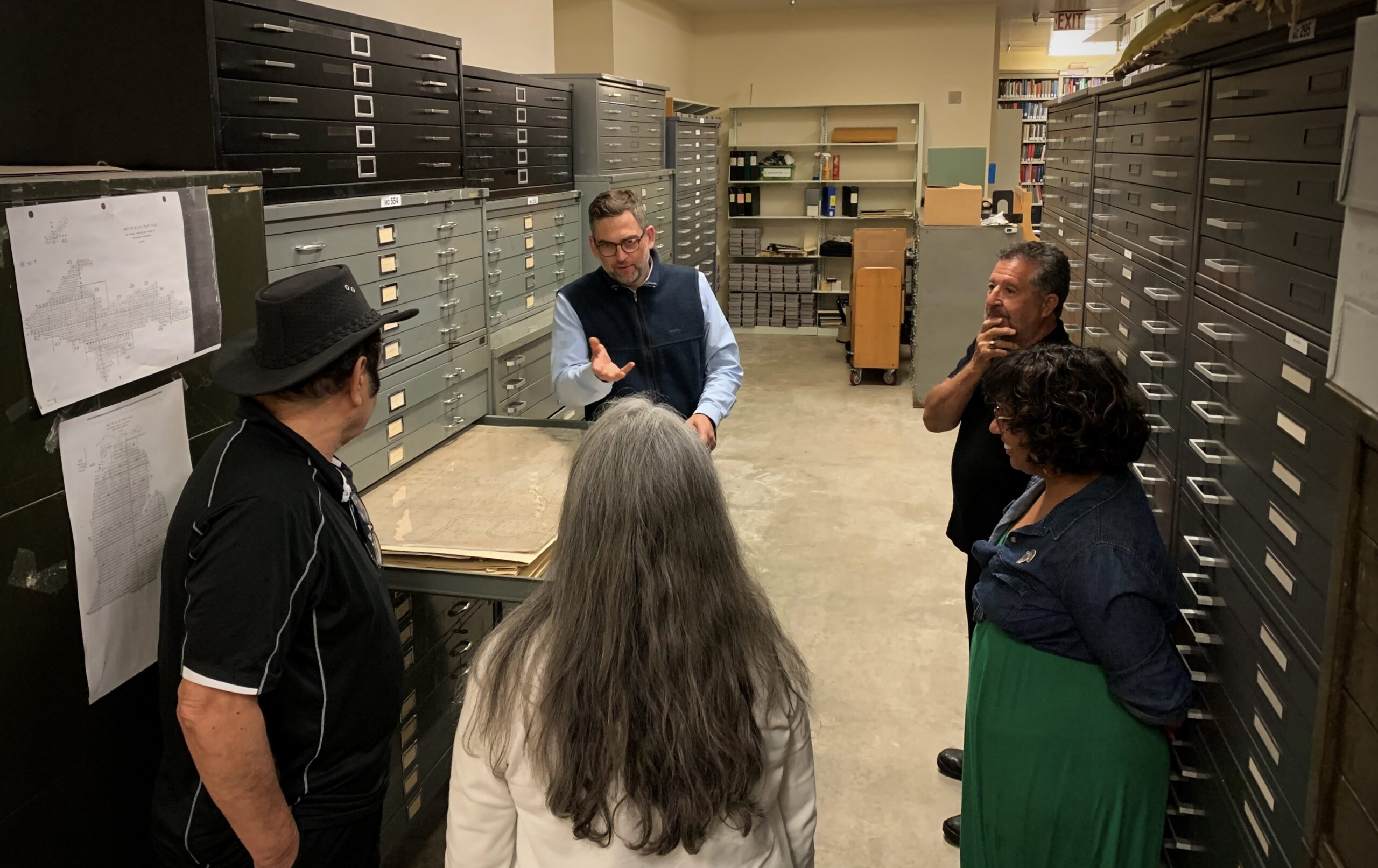
Addressing the Silences
Webinar Series
At present, the United States is reckoning with a range of divisive issues that have left the country profoundly polarized and on edge. An extraordinary confluence of trends – including the disproportionate impact of the COVID-19 pandemic on vulnerable communities, heightened awareness of police violence against people of color, a devastating economic downturn, rising discrimination against immigrant communities, and the politicization of crucial public health and education issues – have spurred museums across the country to reflect on their historic role in perpetuating injustice and their role in fostering social cohesion today. It is in this questioning that museums have begun to ask: “Who is missing? Whose story is silent? Whose experience is absent?”
The International Coalition of Sites of Conscience is leading a cohort of thirteen museums and community partners across the United States to take on these questions in Addressing the Silences, a three-year project intended to help sites create ever deeper more meaningful relationships in their communities. Since first coming together in late 2022, project participants have worked to foster co-creation with their communities and correct silences and absences in their institutions so that they can better leverage their extraordinary capacity to serve as spaces for reflection and centers for positive social change. In order to share their valuable lessons learned, ICSC is hosting a three-part webinar series open to the public and all members. Join us as we share stories and tools for reflection, collaboration, and internal change. Each of these sessions are participatory and will include activities to help your institution address its silences and grow its relationships.
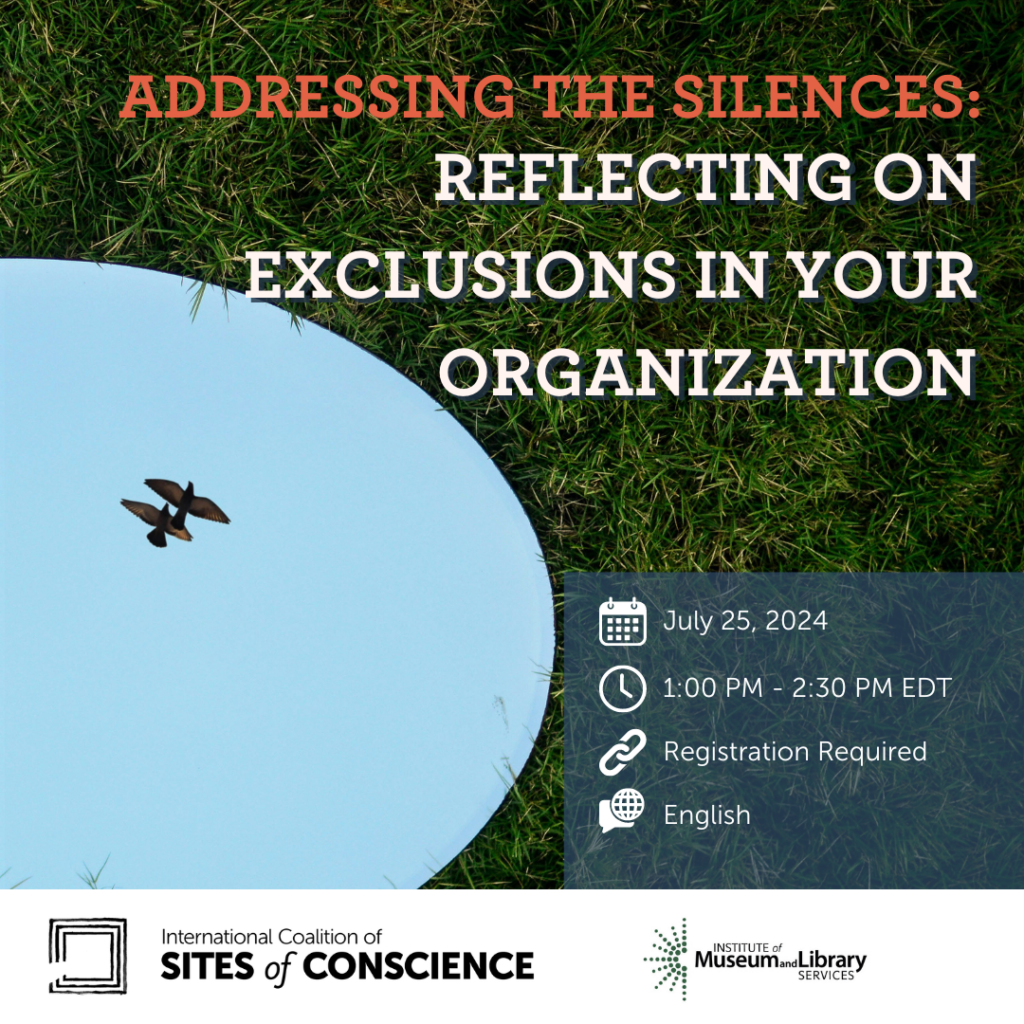
Reflecting on Exclusions in Your Organization
July 25, 2024 | 1:00 PM EDT
The first step of external change is internal reflection. In this webinar you will hear stories and frameworks for organizational reflection. Join ICSC in conversation with project participants from the Catoctin Furnace Historical Society, Inc. with President Elizabeth Comer and Officer Anne Comer, as well as the Historical Museum at Fort Missoula with Assistant Director Carolyn Thompson. Together, they will share an assessment tool to assist attendees in beginning to reflect on their organization’s community representation and engagement. You’ll learn ways of identifying and describing communities that recognize their complexities and interests. Project participants will also share how and why they decided on one community of focus and began identifying potential partners.
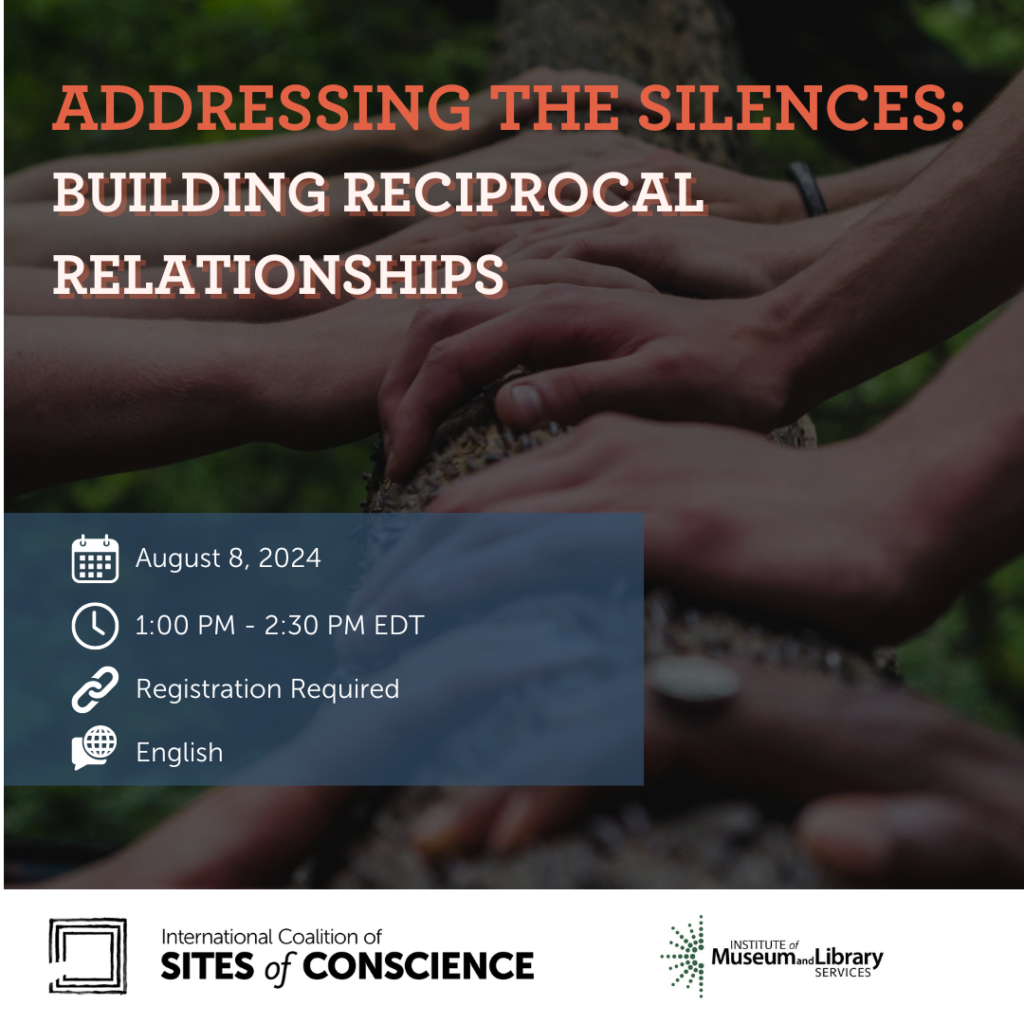
Building Reciprocal Relationships
August 8, 2024 | 1:00 PM EDT
In this session, ICSC and project participants from the Chinese Historical Society of America, Hermann-Grima + Gallier Historic Houses, the Illinois State Museum and John Dickinson Plantation, along with their community partner, The Southern Delaware Alliance for Racial Justice, will share frameworks and strategies for building reciprocal community partnerships. You’ll hear about the relationship building activities between the museums and community partners that began with getting to know each other personally before diving into a project together. We will also share how institutions can intentionally share power with partners, how to identify a larger shared purpose with your partner, and important ingredients needed to create and maintain reciprocal relationships.
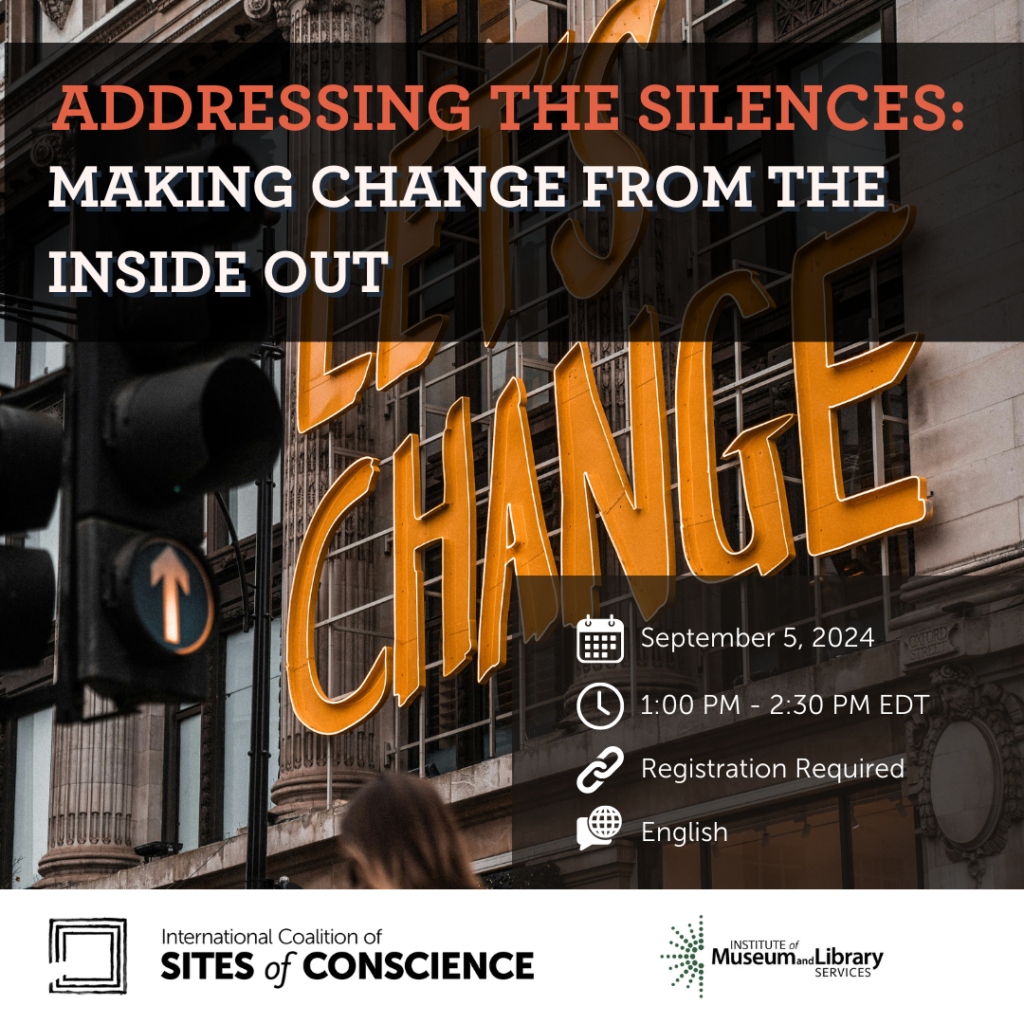
Making Change from the Inside Out
September 5, 2024 | 1:00 PM EDT
Our final session of this series will discuss internal institutional change and why we’re making change from the inside out. In conversation with project participants from Michigan History Center, City of Austin Heritage Museums – Elisabet Ney Museum with their community partner The Refugee Collective, and City of Austin Heritage Museums -Brush Square Museums, we’ll discuss how they and their community partners reflected on current institutional practices to identify barriers to collaboration and inclusion and the outcomes necessary to address those challenges. Attendees will learn how each group created an action plan to begin to break those barriers by making changes to their internal policies, practices and approaches. You’ll hear stories, examples and lessons learned in the internal changemaking process.
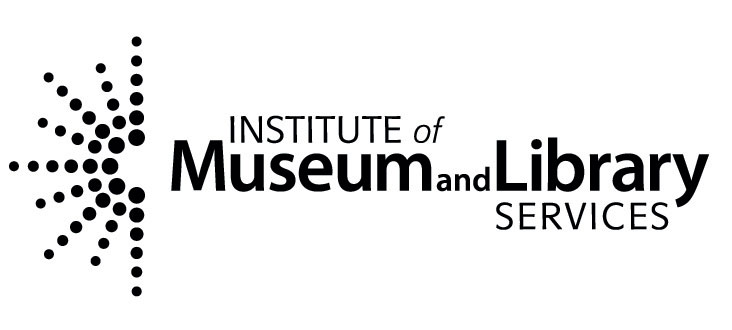
We are a proud partner with the Institute of Museum and Library Services (IMLS) on this project!
